Grangemouth High School have shared the following Sway with us. This is about their collaborative P7 virtual transition programme with Beancross Primary School, Bowhouse Primary School, Moray Primary School and Sacred Heart RC Primary School.
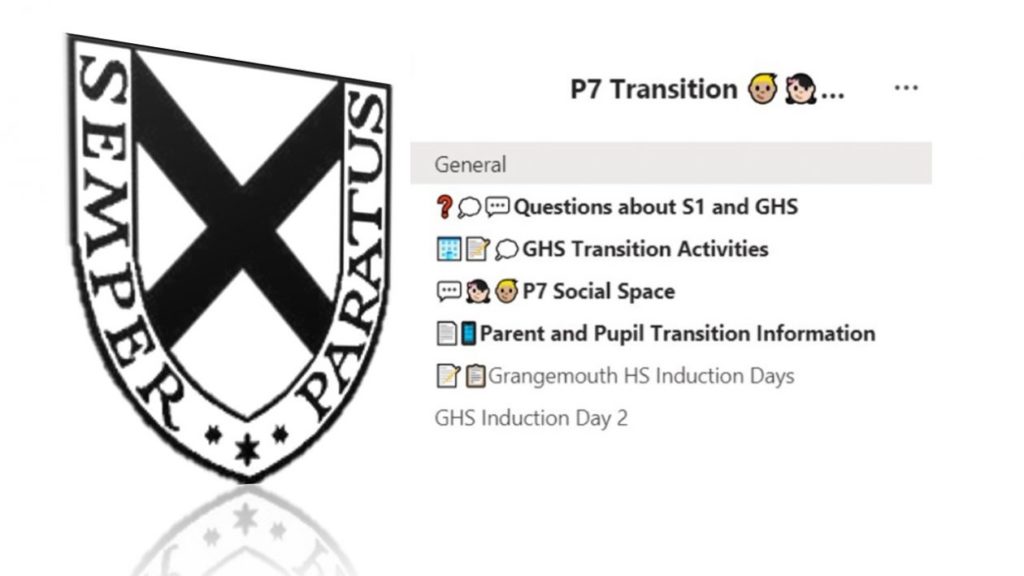

Grangemouth High School have shared the following Sway with us. This is about their collaborative P7 virtual transition programme with Beancross Primary School, Bowhouse Primary School, Moray Primary School and Sacred Heart RC Primary School.
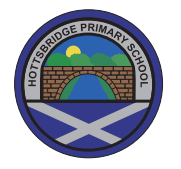

Learning and Teaching
At Rosshall Academy, the announcement by Glasgow City Council that every student would receive an iPad came at a time when staff members were refining their Broad General Education curriculums. Through supported collegiate and faculty meetings our school had already critically engaged with literature that looked to ensure an inclusive curriculum that met the refreshed narrative of Broad General Education as set out in 2019. We wanted to structure a course through the principles of simplicity, consistency and clear recognition of skills. We also took into great consideration how our curricular designs helped students emulate and embody the four capacities, in order to ensure they are given the best possible start to their future. The introduction of digital literacy to our learning plans allowed for more creativity in our initial ideas, and so was naturally included in discussion from this point onwards. This allowed for the creation of my role as Digital Literacy Coordinator, in which I took responsibility for helping colleagues identify worthwhile and robust aspects of digital literacy that could be incorporated with these BGE plans. This role was create under the umbrella of Learning and Teaching Development within the school, with the intention being to ensure digital learning is used in a valuable and enriching way to further bolster excellent curricular design.
By December of 2019 teaching staff had received their iPads and training, and the illimitable possibilities within digital literacy were now tangible. Staff understood that digital literacy was not just a means for supporting a subject’s own learning, but carried value of its own. With this in mind, we continued to work on exciting curriculums that would ensure our students would have a greater knowledge and understanding of our curricular areas, as well as including the skills needed for learning, life and work that could be achieved through digital literacy. Given Digital Literacy is the responsibility for all teachers to deliver, alongside Numeracy, Literacy and Health & wellbeing, is was important for all staff to contribute to, and feel competent in, delivering digital literacy within their classroom. I also highlighted to staff members that at this point in time, we are trying to prepare students for jobs that might no yet exist. Given that we are in the midst of the 4th industrial revolution, we must have young people prepared with the skills required for work, and feeling like they can fulfil the four capacities. Looking at the technological advances in the past 20 years it was clear to me that we have to prepare our young people for as much change and innovation as possible. With my support as the Digital Literacy Coordinator, we looked at the different opportunities core Apple apps provided, as well as experimenting with others such as Green Screen and Book Creator. Staff found where they could effectively integrate these into lessons and assessments with support, and were enthused by the opportunities platforms such as Showbie and Teams provided in terms of homework, workload and feedback.
We were also motivated by the opportunities that working with iPads and digital literacy allowed as we sought to help our students in raising their attainment – work could now be handed in with oral annotations or typed to be more accessible. It opened up a range of additional opportunities to our students requiring further support in some learning areas. Our EAL students will have better access to translating apps, as old the teacher to enforce better relationships. Our VI students could now access a range of apps with enlarged text and ‘text to speech’ functions. Our learners with additional support requires could also adapt the iPad’s accessibility features to suit their needs, and those with some interrupted spells of learning would now have a quicker, more efficient method of gaining support from their teachers.
Challenges and opportunities of COVID and Lockdown
The staff enthusiasm for the integration of iPads into daily school life was a blessing when we were plunged into lockdown. Though our students did not yet have their iPads, many teachers had already given them snapshots of what digital learning would look like in the near future. Classroom-style apps had already been set up by several staff members, and those who had not worked to have these installed prior to the school closure. This has meant that despite the difficult and sudden circumstance, we have had much success in moving to digital and distance-based learning.
Year groups were given an overview to the basic apps they might be asked to use during lockdown, and information about accessing these and Glow emails were distributed to students and families in through various routes. Robert Cleveland, PT of Employability and Family Engagement, revamped the school website, with pastoral and curricular education. Students and families now had another way to access their subjects, and could find a well of information and useful contacts.
Our staff has also engaged in many in-house CLPL sessions via Teams. Delivered by our DLOLs, we have recorded and held live webinars exploring some apps furthers and providing a centre for question-asking and tip-sharing between staff to support each other. This hub of positive activity and professional learning has encouraged further growth in confidence in many staff members, whose new skills and knowledge ultimately transferred into a positive learning experience for student
By surveying staff and pupils, there has been a positive response to how our distance and digital learning has gone. There have been teething problems, and it is important to recognise the barriers in place to some students during this time in terms of access to digital equipment, but staff have endeavoured to find as many routes around these issues as possible
Our Digital Future
Though we are not sure just what our next school year may look like yet, the staff and I at a Rosshall academy are excited to continue on our digital learning journey when all students receive their iPads. We have worked hard to give all new S5 and 6 students receive their iPads prior to the summer break, to ensure they can access a much material as they wish to going into qualification years. With a focus of the new school yea likely being blended learning, we are developing materials to support staff, pupils an parents alike to help navigate this learning and teaching method. We are also looking to blend our extensive training on Making Think Visible strategies with our new-found technology in order to support students fully when they are learning in school and at distance. Though there will continue to be some obstacles, I believe our collective engagement with digital literacy from a curricular planning level has meant we are equipped to help lead our students through this unusual time. In the face of difficulty, we create, innovate and elevate.
Sophie Lamont is the Digital Literacy Coordinator of Rosshall Academy, and is a Teacher of Dance and Drama within the school’s Faculty of Performing Arts.
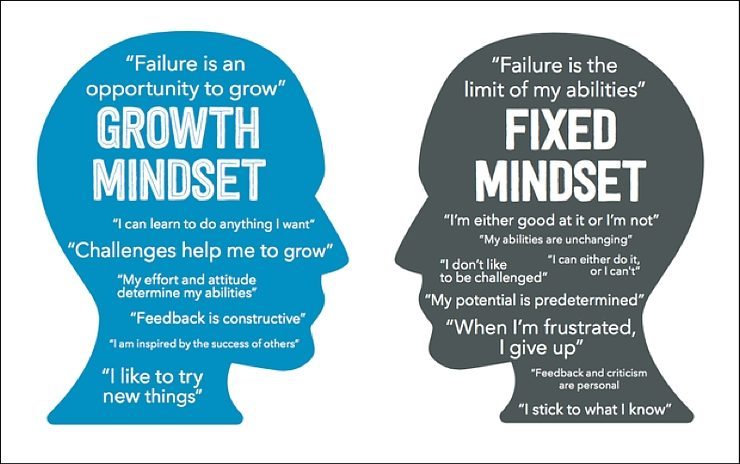
Hi I am Mandy Davidson Acting Principal Teacher Curriculum Support (Wider Achievement) RME/RMPS/Care at Lenzie Academy. I came to be a Microsoft Expert because it was the easiest way to find out how the limited technology I had could be put to the best use. Nobody around seemed to know the answers to my …
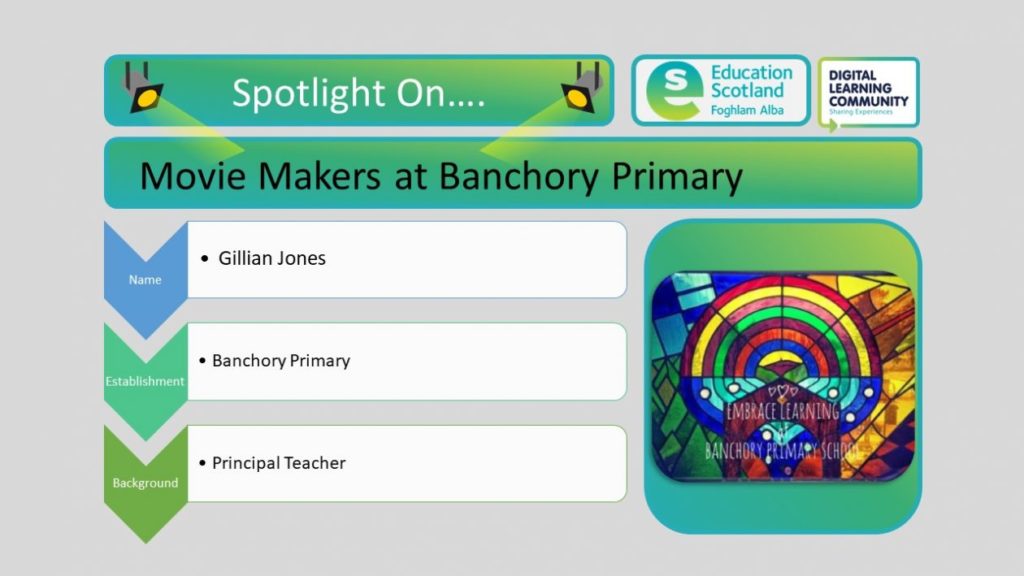
Like everyone with recent events we were thrust into a new way of delivering learning. Normally at this time of the year Primary 7 are asked to prepare a short speech on a project of their choice. The pupils are then asked to present these to their class, the selected pupils then present to the whole school before going forward to the cluster final in which they deliver their speeches to a judging panel.
The pupils were asked to continue with the project using the skills which had been taught previously in school, the pupils use iMovie, Do Ink Green Screen, GarageBand and clips to create their speeches.
This is one example of a Student Speech that was submitted. This student created a script, got into character, filmed himself in front of a green screen and then edited the video. I am sure you will agree the content is excellent and the theme for the video has made the video extra special.
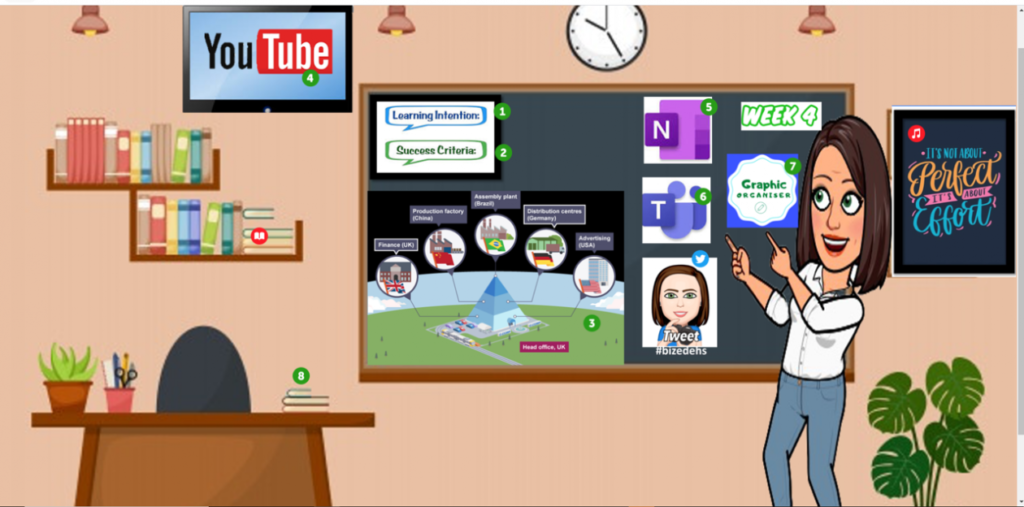
Background Hi, I am Shelley a Business Education Teacher in the Scottish Borders. This is my first year as an MIEExpert and a Microsoft Trainer and I am very passionate about digital technologies. Due to the nature of my subject in School I am fairly comfortable with using Microsoft software and I have been using …

A Digital Transformation Story: Using G Suite to enhance and support learning
Our story begins in 2017 when Coalburn Primary School received 11 Chromebooks as part of an IT refresh. After a very short time, these devices became a regular feature in our daily teaching, so much so, that we purchased a further 14 to allow the whole school to benefit from their use more frequently. (We are a small school of 4 classes)
In the beginning, the Chromebooks were used primarily for online games to support learning and access to the GLOW Launchpad tiles. Their compact design, long battery life and portability meant that they were easy to have within the class, on desks. However, after attending a course on Google Classroom, the scope of the G Suite tools became more apparent.
Google Classroom has provided pupils with a platform for collaborative learning. With assignments being scheduled ahead of time, class teachers can work with a group, free from interruption, while other pupils access tasks set in Google Classroom with resources attached. It has provided access at home to resources needed to revise, notably using Google Classroom for Bikeability videos and tasks. Children from different classes within the school, in the same virtual classroom, sharing their learning.

Google Classroom assignments led to exploring the other Google tools: Doc, Sheets and Slides. Upper school pupils can use these tools confidently, knowing that their work saves automatically to Google Drive. It has afforded them the chance to work collaboratively on documents to share the tasks. The online nature of the programs means the pupils can access tasks at home and in school. Since August 2019 large number of pupils were using Google Classroom on their phones and tablets, through the apps available. Google Assignments have allowed staff to comment on tasks completed and give constructive feedback for pupils to act on.
Another major benefit to using Chromebooks in class are the accessibility extensions available within the browser. OpenDyslexic converts all text on the screen to a bottom-heavy font. This has been a game-changer for dyslexic pupils in terms of accessing text. The font is easier to read and pupils are gaining confidence in their ability to work independently. Another accessibility tool for pupils with literacy difficulties has been Read&Write, a screen reader which reads any text on screen to the user. It also provides talk and type, allowing pupil to record ideas and tasks. Pupils can have a Chromebook on their desk and work more independently, thus increasing confidence in their own abilities.
Growing confidence in the use of G Suite tools led me to joining South Lanarkshire’s first cohort of Google for Education Certified Educators, spending 2 days training and sitting the exams for Level 1 & 2 accreditation. Having been encouraged by the course leaders to continue this adventure, I decided to apply for Certified Trainer status and was delighted to receive notification in January 2020 that I had passed. This has led to meeting a group of like-minded people, enthusiastic about digital transformation and a network of worldwide educators sharing their ideas. The rest of the school staff have also engaged fully in this journey, developing their digital skills and knowledge and sharing this with their classes. Pupils in the upper class have become our digital leaders, helping younger pupils access these new technologies with gentle encouragement.

In these unprecedented times, when home learning has become essential, our pupils have engaged enthusiastically with tasks set in Google Classroom. They already had the skills and knowledge from school this year and could apply this from their home setting. The key has been to keep it fresh and assign tasks that allow collaboration even though they cannot physically be together. They have planned a “virtual sports day” using Jamboard, using Sheets to create scoresheets. Literacy tasks have been completed using Breakout Rooms to allow pupils to share their thoughts and knowledge as they would have done in the classroom. One of the simplest but most important things to have come out of using Google Classroom for home learning is saying good morning every day. Some pupils log on at 9am every morning to say hello to their teachers and classmates. This is a link that they need, to bring normality to our new routine. It makes me smile.

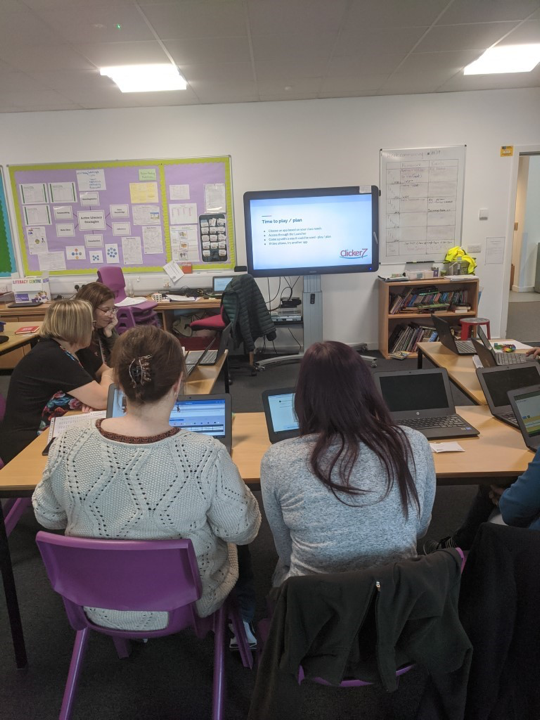
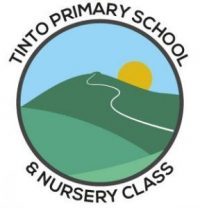
Digital development with Google for Education and G-Suite
Over the past year I have been developing my digital skills as a teacher and as ICT coordinator by taking part in Google for Education training. This has been a key part of our digital journey throughout our school. We identified digital literacy as a priority in our school improvement plan and as we had recently moved to Chromebooks in our refresh we had already decided we should uplevel staff and pupils skills in using G-Suite through Glow.
My local authority South Lanarkshire Council offered the opportunity for ICT Coordinators to take part in Google Educator bootcamps at the end of last year and I was really excited to get this opportunity. They were led by Ian Vosser, Faculty Head of Digital Literacy & Enterprise at Larkhall Academy who is a Google Trainer and Innovator and Karen MacLeod, Digital Support Officer for South Lanarkshire Council. I hadn’t really appreciated how transformative this training would be and over four (long, hard, rigourous!) days of training in a really supportive and positive group we got our Google Educator Level 1 and 2 and then Trainer qualifications all within a term! It’s hard to explain the level of technical expertise and confidence I have gained but I went from google novice to trainer in the space of a few months.
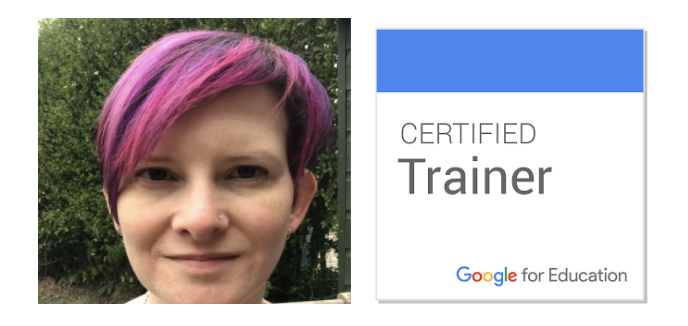
The impact in my teaching has been immense, in my P4/5 classroom we use google tools for everything, from using voice typing on docs, to creating slides to share our research, to building our own websites to showcase our learning, making data using forms and sheets, we have embraced it all. My class has really become independent too with technology and are happy to use Google Classroom to access materials in class, or at home and then create responses in docs, slides and jamboard. The Chromebooks have been of enormous benefit to digital literacy, we now have 14 in our school of 88 pupils over 4 classes and they are used each morning across the school and then pooled in the afternoon and used on a timetable. The accessibility tools have been of particular benefit and all the children have been trained in using voice typing and screen reading.
This practice has extended across the whole school with all children now using G-Suite and Google Classroom which has been invaluable during lockdown. Every child P4-7 used Glow and G-Suite every week in school and at home and they were able to train P1-3 in logging into Glow and navigating classroom in March so we could smoothly transition to online teaching this term.
But the greatest impact has been training staff across our learning community. Starting with sharing Google training sessions with our learning ‘trio’ of local primaries this session, I quickly opened this up to our whole learning community across 12 associated primaries and our local high school. We are planning to offer Google Educator level 1 bootcamps as soon as we can but in the interim I have taken my training online and offered sessions to introduce Classroom and G-Suite supported by our own training classroom which has been fantastically well attended. I’ve also taken part in some live YouTube sessions sharing Jamboard, primary Google classroom and our digital journey story with the greater education community. The support and interest from Google Educator groups nationally and internationally has been really developmental to my practice and I am really enjoying training other educators and sharing practice across the world.
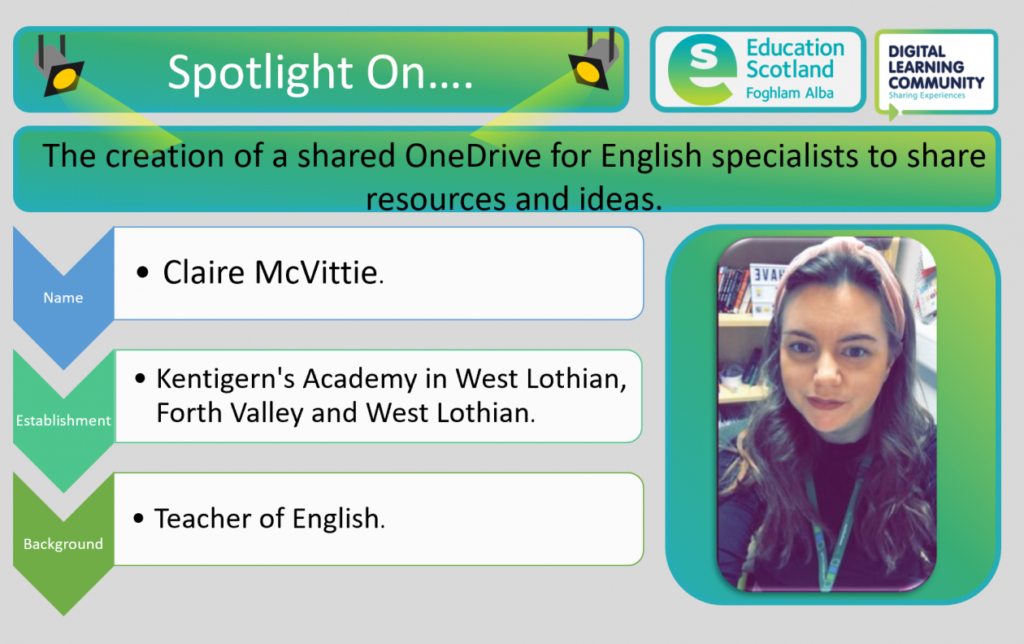
Currently, the page has 1,398 members; teachers ask to join daily and, most importantly, it gets people sharing resources. I am always impressed with the different resources I find on it and I am very grateful to everyone who has taken the time to upload their own work – we all know how long it takes to produces high-quality resources!
Given the current climate, teachers are working harder than ever to ensure that our young people are receiving the best possible support in so many different areas. I am delighted to see that my OneDrive page is being utilised and is supporting people during these unprecedented times and can’t wait to watch it grow.
Claire McVittie
Twitter: @missmcvittie
Email: claire.mcvittie@westlothian.org.uk
Instagram: @st_kents_english
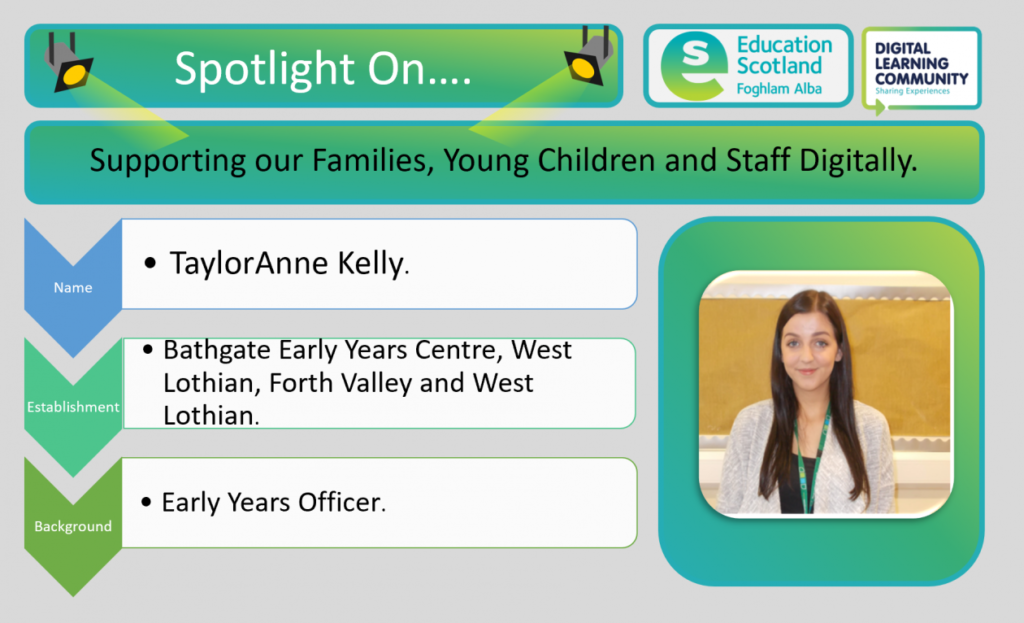
Bathgate Early Years Centre, West Lothian, has always demonstrated a strong supportive ethos for our families, young children and staff. We have aimed to continue this during this uncertain time. One of the essential focuses has been mental wellness; we created this Mental Health Awareness Sway as a reference point for anyone who may need ideas to help regulate emotions and feelings for themselves or children and access helplines or websites for support. This is continually being updated each week.
We communicate regularly with parents/carers through the Online Learning Journal message feature where we provide the opportunity for a chat and suggest try at-home activities to help keep the children busy and active. Staff members regularly film themselves reading their favourite stories to the children ensuring the children are still seeing our familiar faces and hearing our voices. We then document these activities through our Glow blog and Twitter account @WLBEYC.
Our young children have always been co-creators of the learning in our Early Learning and Childcare Setting and during this time it has been no different. Following learning from home we currently have a Planting & Growing Project Sway and The Very Hungry Caterpillar Sway. These are filled with activities set from staff members and also include lots of fantastic input from our families.
Bathgate Early Years Centre was awarded a Digital Schools Award a few years ago now, and our digital journey is constantly adapting and changing. During this time our staff team have really supported one another to adapt to working from home. We discuss and communicate every day using Microsoft teams and have weekly meetings using the video call feature. Digital Technology really has brought us all together and we are continually working together to support every staff member develop their digital thinking and skills.
West Lothian Digital Learning Team are always on hand to support us and regularly share practice using their Twitter account @wldigilearn, and via Yammer and the WL Digi Learn SharePoint.
Email: tayloranne.kelly@westlothian.org.uk
twitter: @Taylor_BEYC